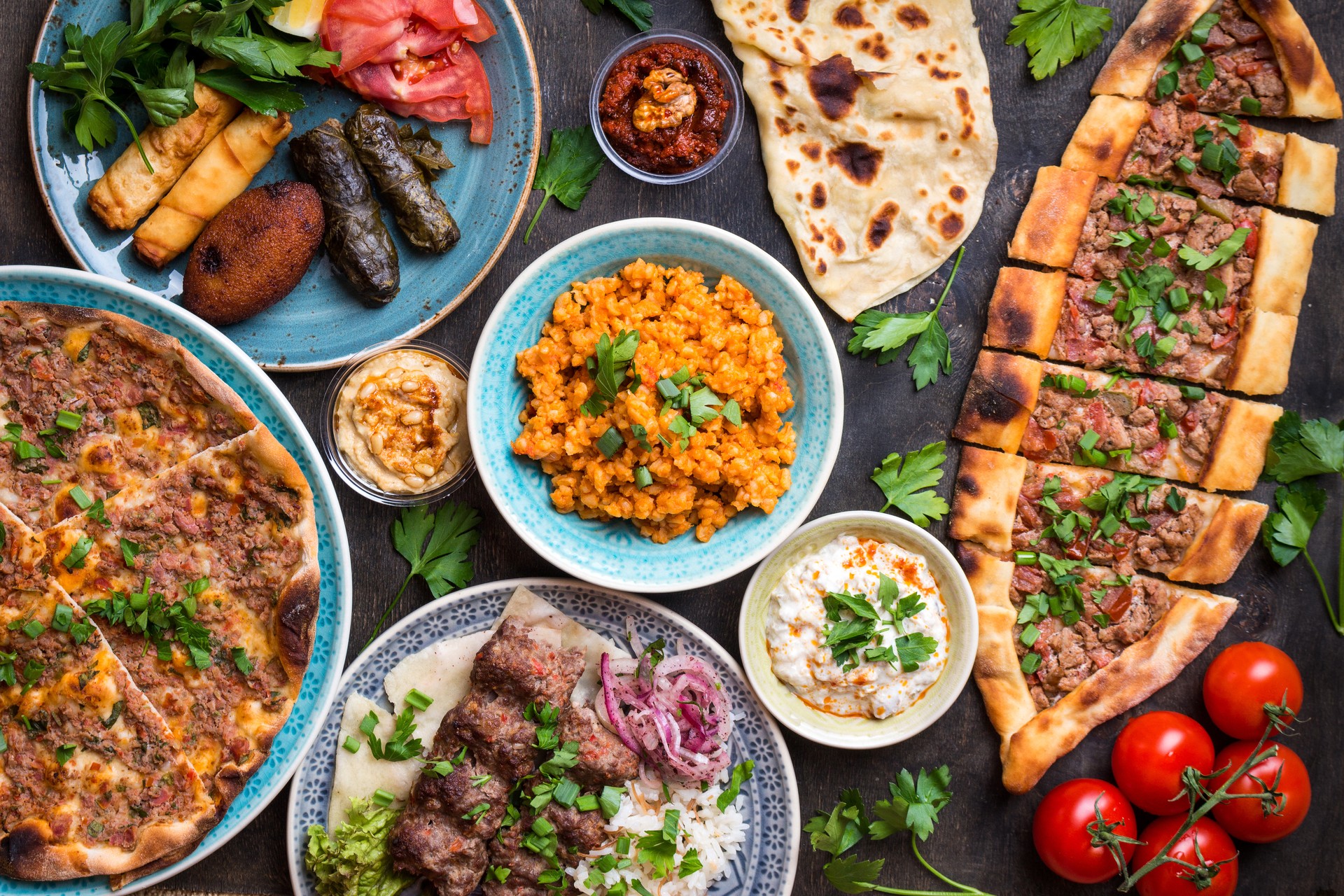
As Eid al-Adha approaches, Turkish cuisine takes center stage with a variety of traditional dishes that showcase the rich flavors and cultural heritage of the region. But before diving into these culinary delights, it's essential to understand the significance of this special day and how it is celebrated in Türkiye.
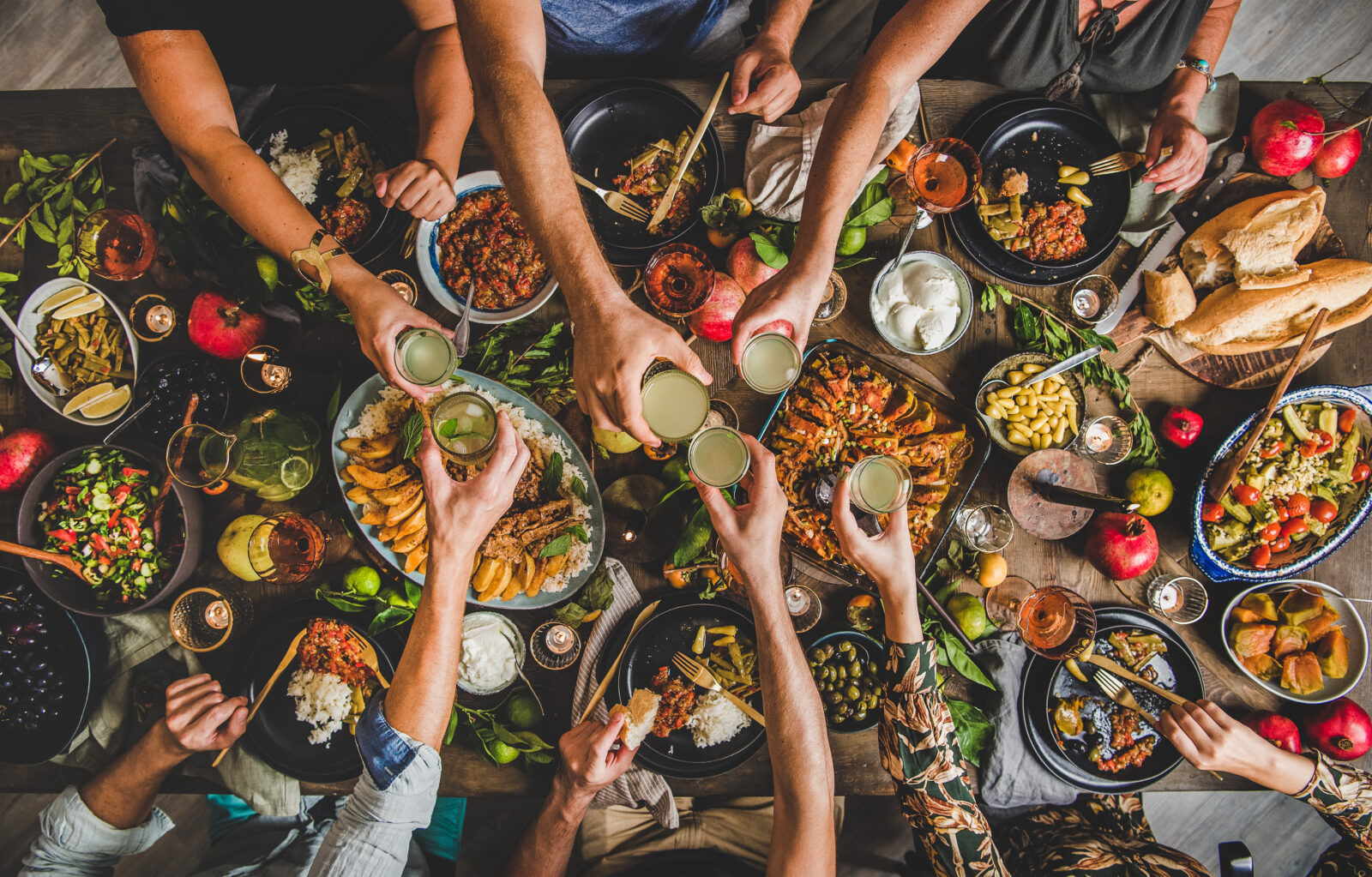
Eid al-Adha, known as Kurban Bayrami in Türkiye, is one of the most important religious holidays in the Islamic calendar. It commemorates the willingness of the Prophet Ibrahim (Abraham) to sacrifice his son as an act of obedience to God.
According to Islamic tradition, God intervened and provided a ram to sacrifice instead. This story is celebrated by Muslims worldwide through the ritual of animal sacrifice, symbolizing devotion, faith, and obedience.
In Türkiye, Eid al-Adha is a public holiday, marked by communal prayers, charitable activities, and family gatherings. The celebrations typically last four days, during which families come together to share meals and distribute portions of the sacrificial meat among the needy, neighbors and relatives.
The act of sharing meat fosters a sense of community and ensures that everyone can partake in the festive spirit.
On the first day of Eid al-Adha, Muslims in Türkiye attend special prayers at mosques. Following the prayers, the ritual sacrifice, known as "kurban," takes place. Families often purchase animals, such as sheep, goats, or cows, in the days leading up to the holiday.
The meat from the sacrifice is divided into three parts: one-third is given to the poor and needy, one-third to relatives and friends and one-third is kept for the family.
The holiday is also a time for visiting friends and family, exchanging gifts, and enjoying festive meals. Traditional Turkish dishes play a central role in these celebrations, reflecting the country's rich culinary heritage.
So let's explore some of the beloved dishes prepared during this festive period, each with its unique story and taste.
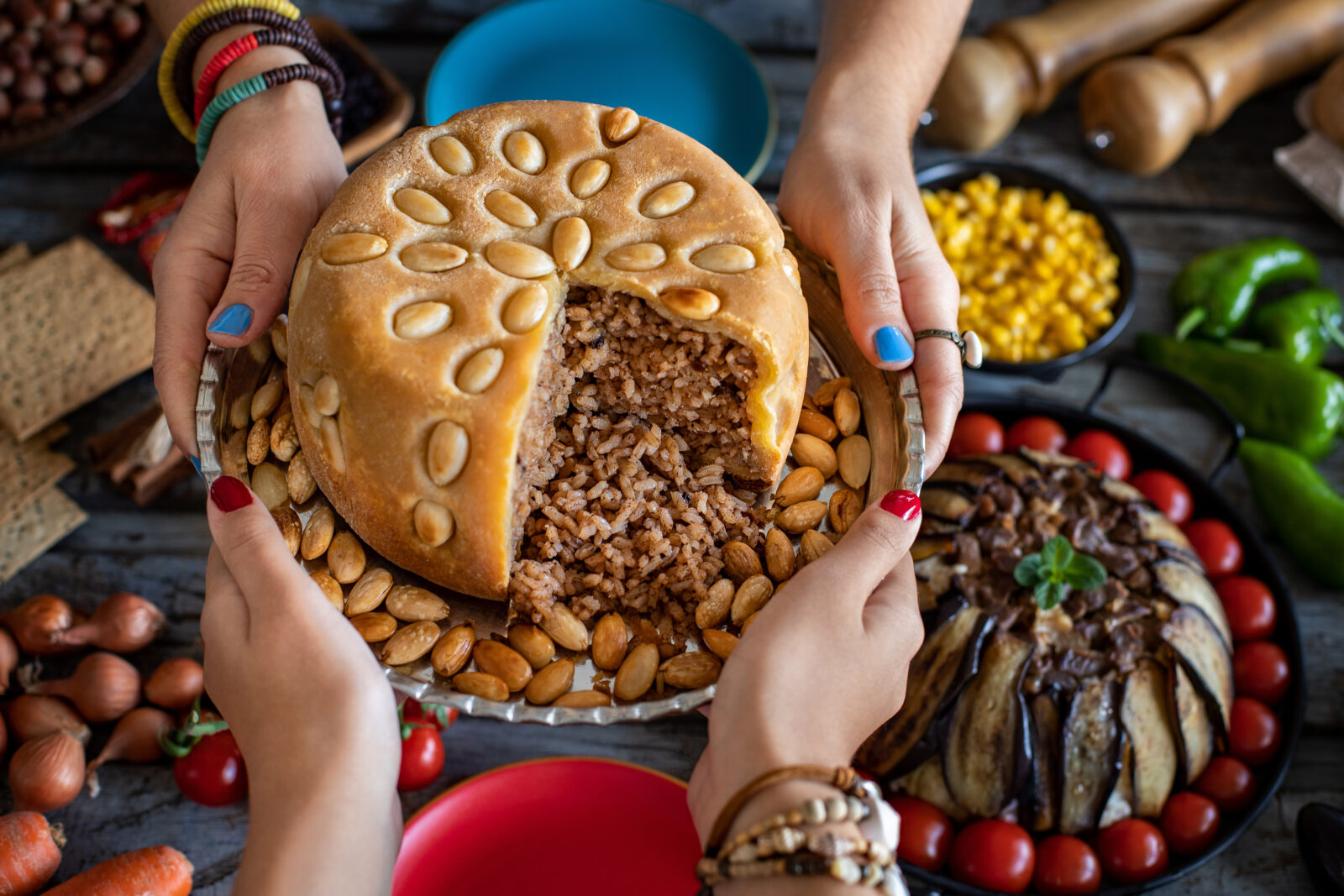
Perde Pilavi might become your new favorite dish if you haven't tried it yet. This dish combines rice cooked in chicken broth with an almond pastry crust. It's labor-intensive but worth the effort.
Each ingredient in Perde Pilavi carries its symbolism: rice represents prosperity, black pepper signifies tough times, currants symbolize sweet moments, almonds represent sons, pistachios daughters, and the pastry crust symbolizes family secrets.
Often served at weddings, this dish embodies Turkish traditions and is perfect for Eid al-Adha.
Recipe for Perde Pilavi
Ingredients:
For the dough:
For the filling:
Instructions:
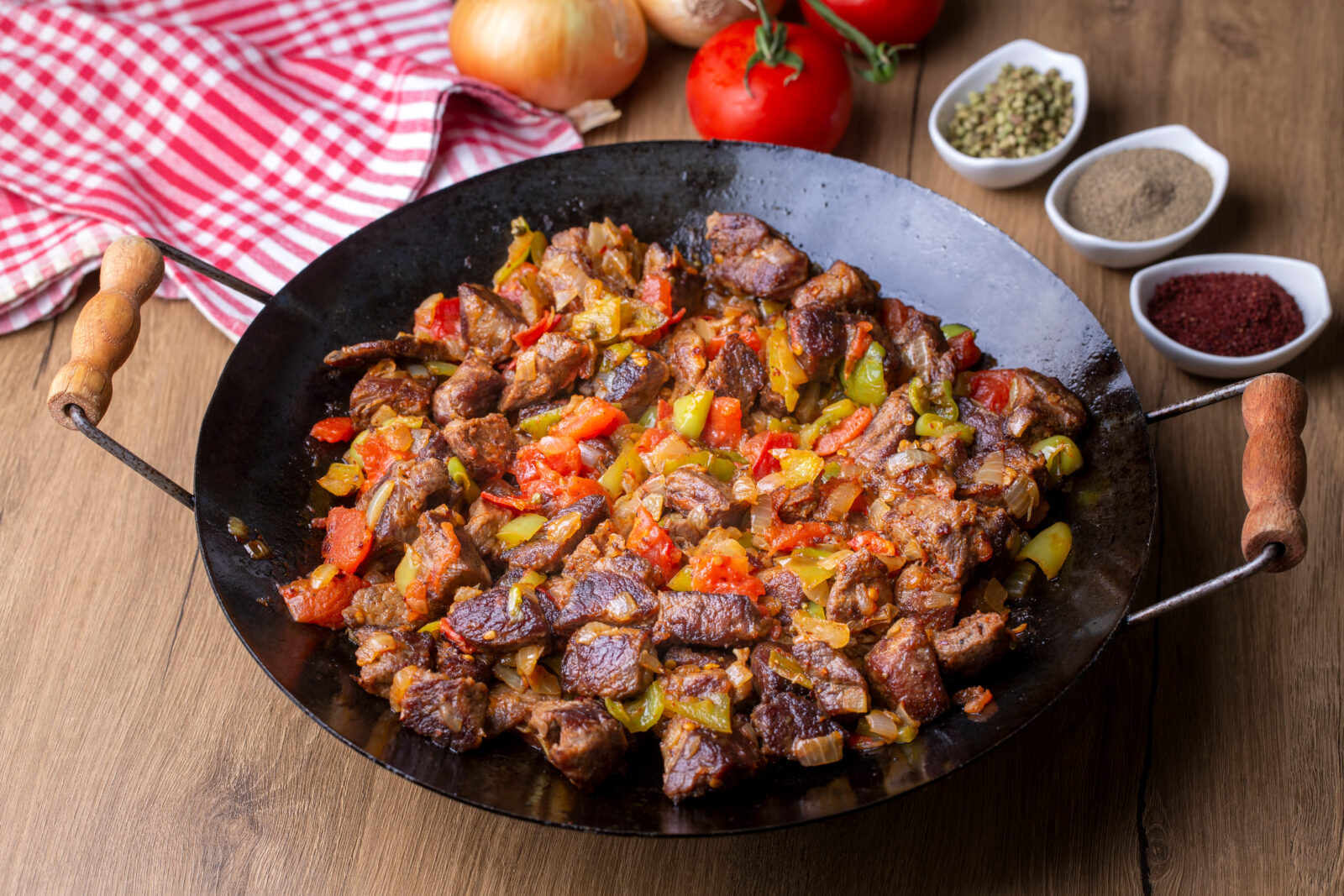
Sac Kavurma is a straightforward yet flavorful dish. Diced meat is cooked on low heat until it releases and reabsorbs its juices. Then, chopped onions, peppers, and tomatoes are added, seasoned with salt and black pepper, and cooked until the tomatoes are reduced.
This dish is typically served with rice and salad, offering a satisfying meal that celebrates the festive spirit of Eid al-Adha.
Recipe for Sac Kavurma:
Ingredients:
Instructions:
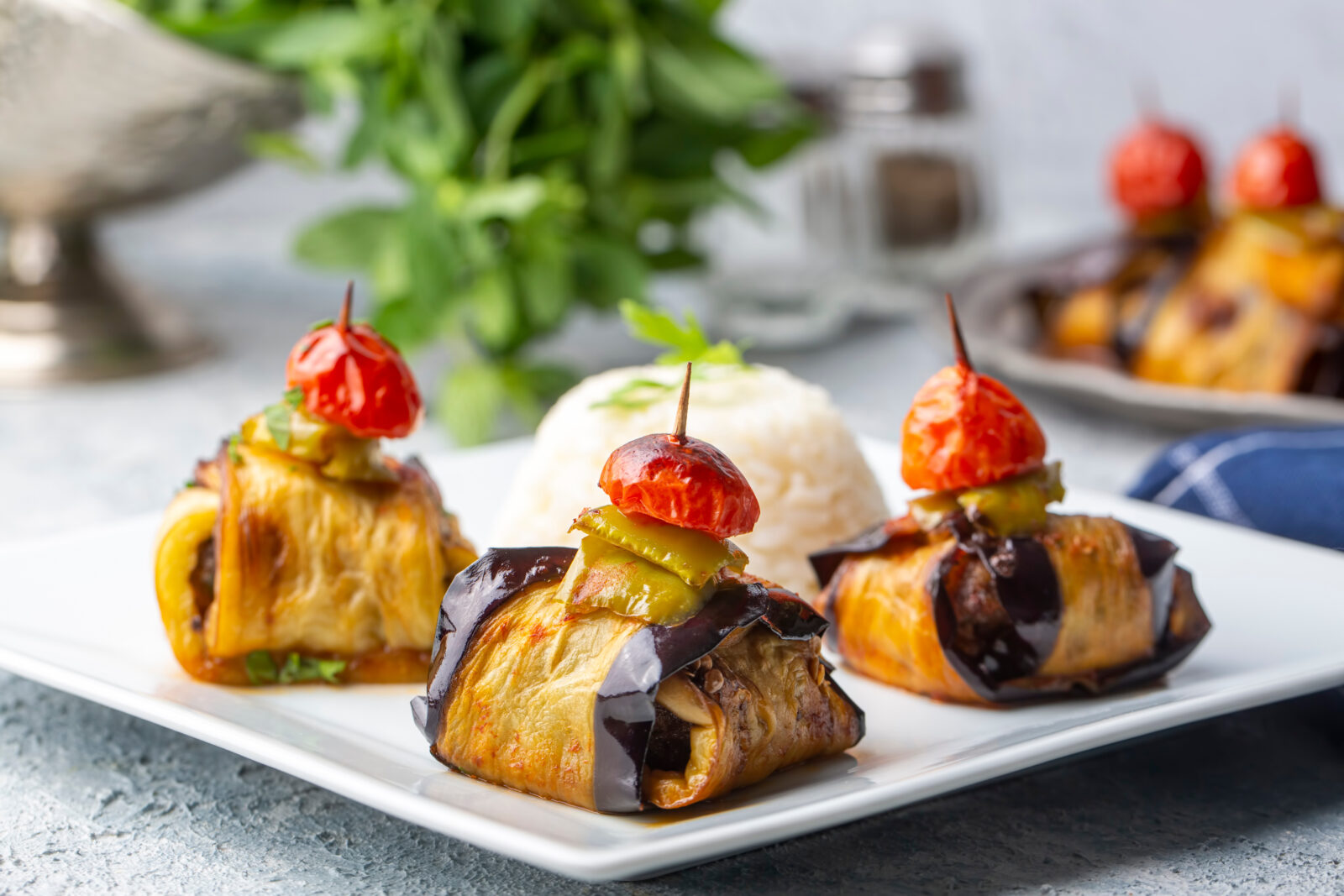
Islim Kebab is a traditional dish perfect for Eid al-Adha. Ground beef is mixed with breadcrumbs, onions, parsley, egg, garlic, and spices, shaped into patties, and fried. Eggplant slices are also fried and used to wrap the patties. The kebabs are secured with toothpicks, topped with cherry tomatoes and green peppers, and baked with a savory tomato sauce. This dish is a beautiful blend of flavors and textures.
Recipe for Islim Kebab:
Ingredients:
For the Kebabs:
For the sauce:
To fry:
Instructions:
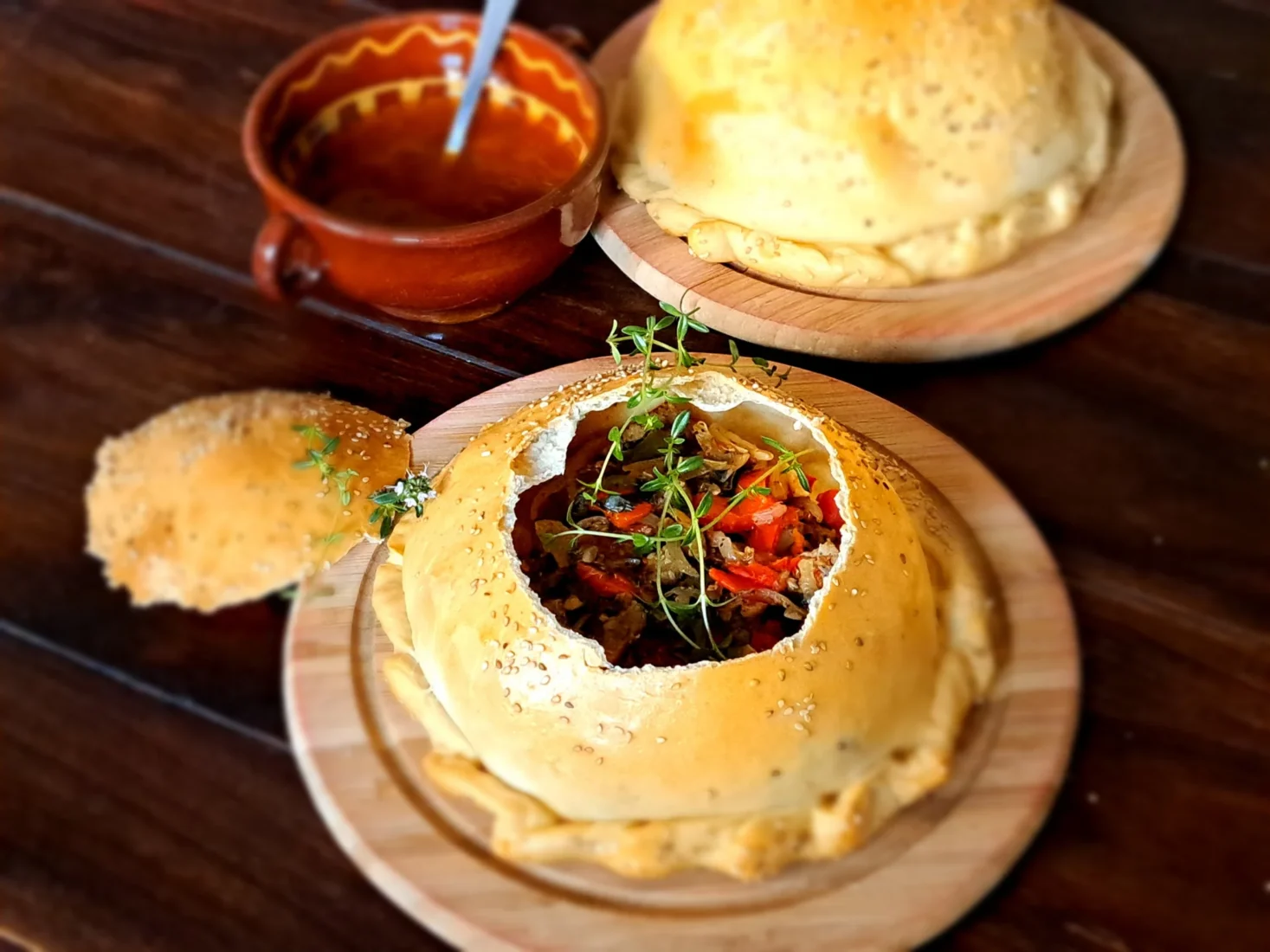
Balon Kebab offers a unique culinary experience. The meat is cooked until it reabsorbs its juices, then sauteed with onions and peppers. After adding tomatoes and spices, the mixture is cooled.
The dough is rolled out, and the meat filling is placed between two layers. The edges are sealed, and the top is inflated using a straw before baking. The result is a visually stunning and delicious dish that will impress any guest.
Recipe for Balon Kebab:
Ingredients:
For the dough:
For the filling:
For the Topping:
Instructions:
These dishes not only offer a feast for the senses but also embody the cultural richness of Turkish cuisine.
This Eid al-Adha, embrace the opportunity to try these traditional recipes and savor the flavors that have been cherished for generations.